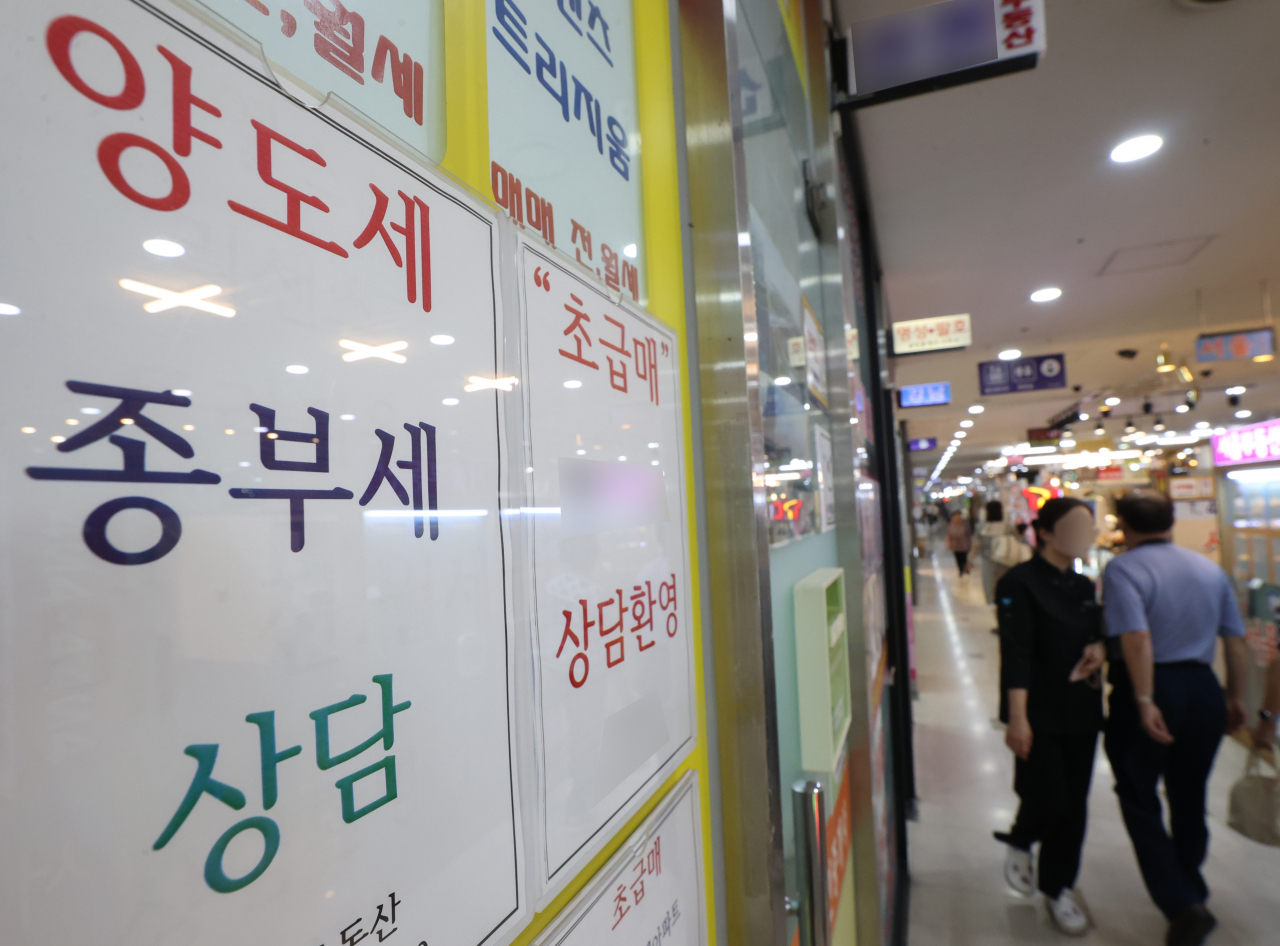
Government revenue from comprehensive real estate holding tax is expected to decrease by 2 trillion won ($1.5 billion) amid a slump in the real estate market, further exacerbating the nation’s potential fiscal deficit this year, according to market estimates Sunday.
The comprehensive real estate holding tax is a nationwide tax that is imposed on an annual basis for apartments with a government-assessed value surpassing 1.2 billion won. Aimed at preventing speculative investments, it is separate from property taxes collected by provincial governments. Individuals who own multiple apartments with a combined appraisal value exceeding 900 million won are also subject to the tax.
In 2022, the government’s comprehensive holding tax revenue reached a record high of 6.8 trillion won since the law took effect in 2005.
Following the record tax income, the government took some measures to ease people’s tax burdens and projected a sizable decrease in tax revenue for 2023. At the time, the estimated total amount was about 5.7 trillion won.
Industry watchers say, however, it seems difficult to even meet the lower target this year.
Falling home prices, among other things, are driving down the nation’s total tax revenue. In March, the average declared value for apartments saw a significant decline of 18.61 percent compared to last year, marking the largest on-year drop ever recorded.
With no immediate signs of recovery in the real estate market, the government has also decided not to raise the fair market value ratio from the current 60 percent to 80 percent, putting more pressure on its tax revenue.
The ratio is used to decide the government’s official property assessment value, which determines the tax base for the comprehensive holding tax.
According to tax calculation service provider Sellymon, maintaining the fair market value ratio at 60 percent would result in individuals paying 20 to 40 percent less tax.
For instance, for an 84-square-meter unit in Acro River Park Apartment Complex in Seocho-gu, Seoul, the comprehensive holding tax for this year is 5.87 million won, a 30 percent plunge compared to 8.79 million based on an 80 percent fair market value ratio.
The decision to keep the fair market value ratio unchanged was to alleviate the real estate holding tax burden on homeowners, reducing it to a level significantly below that of 2020.
As a result, this year, an estimated 3.6 trillion won is expected to be collected in comprehensive real estate holding tax, down 2 trillion won from the projected goal of 5.7 trillion won.








![[KH Explains] Hyundai-backed Motional’s struggles deepen as Tesla eyes August robotaxi debut](http://res.heraldm.com/phpwas/restmb_idxmake.php?idx=644&simg=/content/image/2024/05/16/20240516050605_0.jpg&u=20240516155018)










